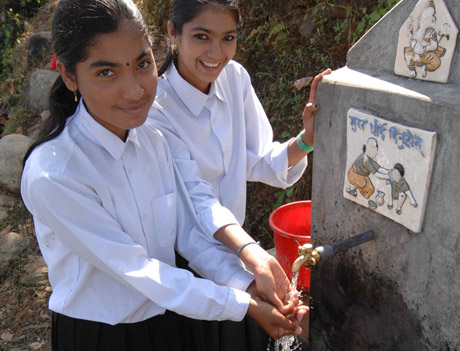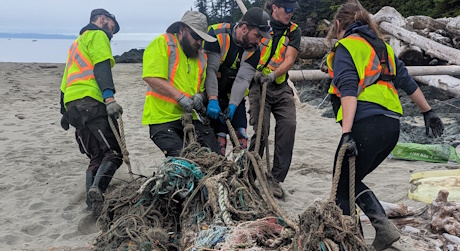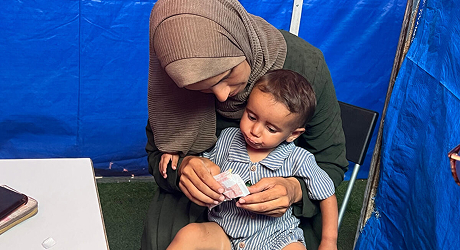Footprints Project
Since 2005, travelers like you have helped us change the world through micro-donations.

-
A total of
2062
Travelers
-
donated
$2202.51
(100% funded) -
to help improve
Water & Sanitation
-
impacting
1360
people -
in
Nepal
The program currently includes two components;
- Community Mobilisation and Training
- Health & Hygiene Promotion Activities
Community Mobilisation and Training
The increased knowledge and skills that these training activities generate not only ensure the effective delivery of the programme objectives but also support the sustainability of the project outcomes in years to come.
The selection and training of the Water and Sanitation User’s Committees (WSUCs) was a critical element of the programme as the members identified form the key decision making bodies on programme activities within the community. The selection processes were carried out through participatory community meetings and members being nominated by their peers
WSUCs membership included women, whose voice is essential for the equitable and effective delivery of water and sanitation services.
WaterAid Nepal’s (WAN’s) sanitation approach relies on the mobilisation of children to stimulate changes in traditional behaviour in the community, specifically in relation to open defecation, through child to child and child to parent pressure. Child health groups, both in schools and community based, were established to increase awareness on hygiene issues amongst children.
Health & Hygiene Promotion Activities
Health & Hygiene Promotion Activities were established to address a lack of knowledge of basic hygiene practices, such as hand washing at critical times, the use of soap during hand washing, domestic waste dispose in proper place, and water and food covering practice.
Hygiene education sessions were conducted at household, Tole (cluster of households), community and school levels. Health motivators and facilitators from our national and local partners led the hygiene education activities. However they were supported by Community Health Volunteers whom they trained and engaged in the activities, and mobilised to promote improved personal and community hygiene practices.
Case Study: Young Prabin leads his family with improved sanitation practices
"It was very difficult for my father to support our education and meet the family expenses, there was no question of constructing a latrine," says Prabin Dewan who was born in Ward No. 16 in Biratnagar Sub-Metropolis.
Prabin belongs to a family of four, with a very poor economic background. It was because of his father's great desire to educate his children Prabin and his sister are in school now. As a rickshaw puller his father works hard all day long and manages to meet their school expenses.
Explaining about the difficulties faced without a latrine at home he expresses, "When we were children it did not feel odd to go out in the open but as we grew older it was very shameful and difficult, but we had no choice." Prior to the implementation of Bakhari Integrated Water, Health and Sanitation project the sanitation conditions in the community comprising was very poor.
Along with drinking water and sanitation facilities, the community people were also provided with health and hygiene education. People were encouraged to construct latrines, dish drying racks and garbage pits and bring them into proper use. "Before the project we did not have any information about good hygiene behaviour," he says. Prabin feels fortunate and proud that he and his friends are now aware about the importance of sanitation and are able to contribute towards the transformation of the community. He further proudly states that, “Now, I don’t need to feel embarrassing since I had a latrine in my own house”.
The project has also supported the establishment of the Sundar Child Club to mobilise children as key agents of change. Prabin was selected the Chairperson. "During the child club training we were provided with awards," he informs, "It motivated us to perform our duties." The child club members were mobilised to go around in the communities and monitor who would build the latrines first. Latrines started coming up gradually in the community. "We drive away anyone spotted defecating openly by blowing whistles at them, as a result of this kind of campaign it has greatly improved the environmental sanitation of our community," Prabin happily claims.
(Update posted 9 Sept 2008)
Traveling soon? When you buy travel insurance with us, you can make a contribution towards a cause you care about.
Get a quote




